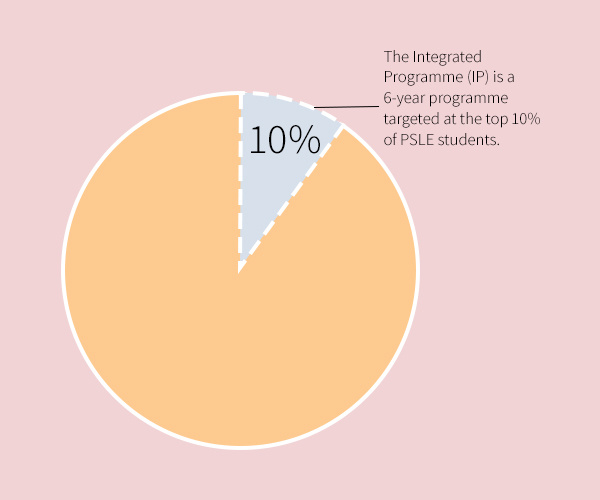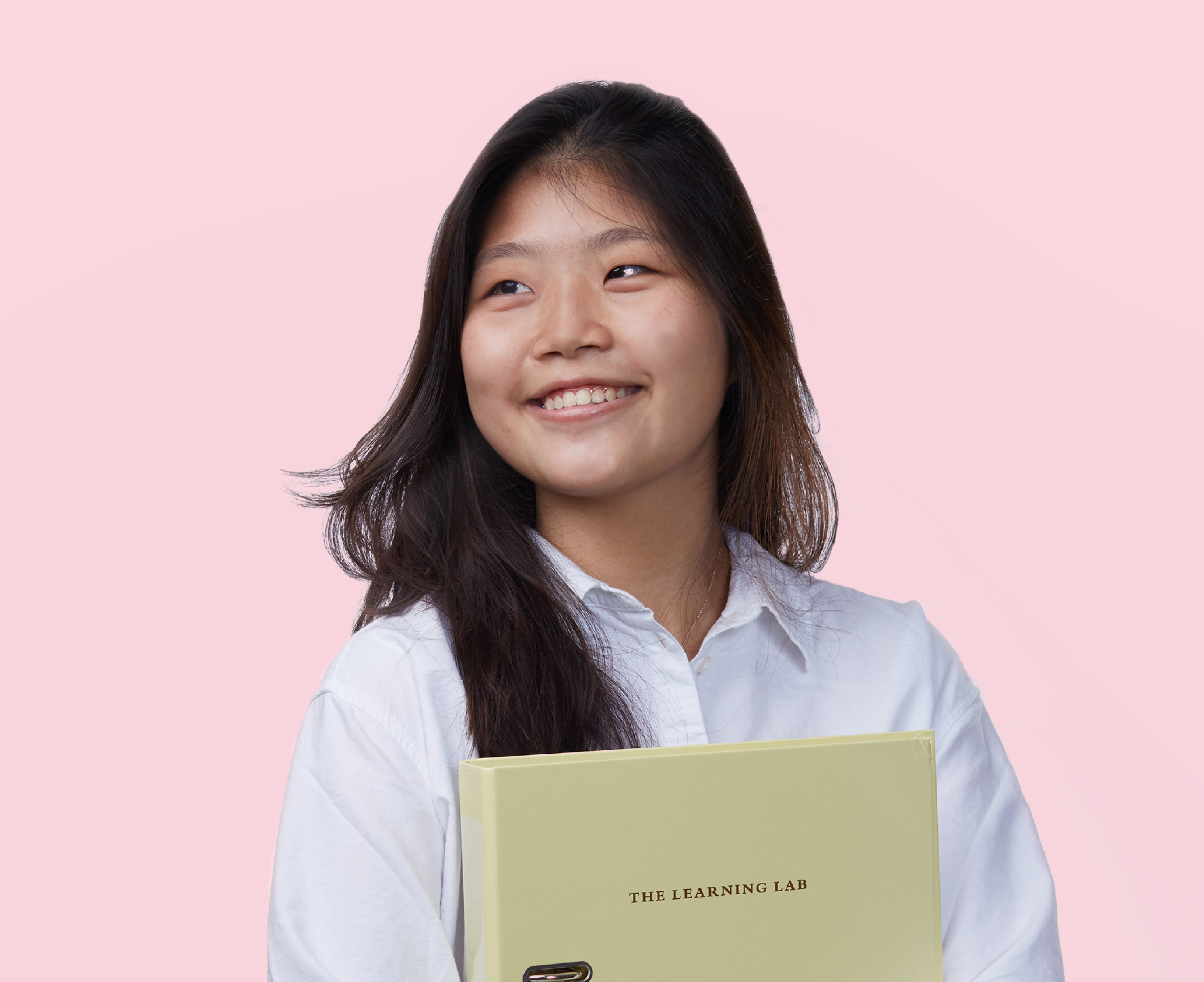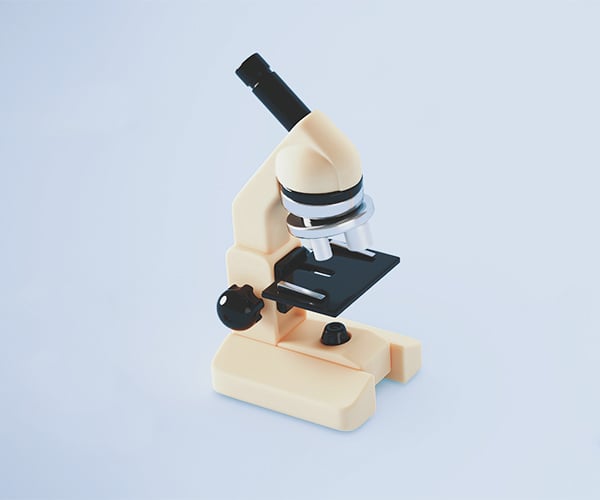
Making the transition to secondary school is a major milestone for all Primary 6 students, as a new environment with new friends and new academic demands awaits. Parents, especially those experiencing the transition for the first time, can often also be swept up by all the information flowing in and the important decisions that have to be made regarding your child’s future.
While you may have the practical considerations on one hand, such as the distance from home to a prospective school, many parents and children will also be considering the variety of educational pathways open to them, one of which is deciding whether or not to enrol in the Integrated Programme (IP).
The Learning Lab peels back the layers of what parents and children can expect from the IP programme, so that you can fully understand what the IP programme demands from and instils in students before you make your choice.

What Is the Integrated Programme (IP)?
The Integrated Programme (IP) is a 6-year programme targeted at the top 10% of each graduating cohort from primary school, or about 4,000 students every year. Students on this programme bypass the O-Levels for a direct route towards the A-Levels, the International Baccalaureate (IB), or NUS High School diploma.
The distinguishing feature of the IP programme route is that, in lieu of express students taking the O-Levels, IP students are exposed to a broader range of learning experiences in both academic and non-academic areas, highlighting the difference between the two routes There are currently 17 schools that offer integrated programme in Singapore, up from the initial 8 when the IP programme was first introduced in 2004. The IP programme leading to A-Levels is offered at 13 schools, while 3 schools offer the IP programme leading to the IB, with the last being the NUS High School of Mathematics and Science.
Each of these sub-routes offers a slightly different experience in catering to the varying and highly differentiated learning needs of high-ability students. It is important for parents and students to look beyond cut-off scores, in the current PSLE scoring system, for the best fit.

How Does the Integrated Programme (IP) Benefit My Child?
Academically, the Integrated Programme in Singapore offers two main benefits. Firstly, it challenges your child by the inclusion of higher-level topics in his or her subjects. This could mean that a Secondary 1 IP student is exposed to topics that he or she would not see until Secondary 2 on the O-Level track, for example. Your child can also expect to be pushed to explore certain topics or real-world issues in greater depth during his or her upper secondary years without the time pressures of adhering to the O-Level syllabus. He or she may be asked to think critically about and articulate an opinion on the role of foreign labour in Singapore society during classroom debates, for instance.
For students who are especially strong in one or two subjects, the IP programme also offers specialised tracks tailored to their strengths.
Secondly, the IP programme places greater emphasis on the development of qualitative skills that extend beyond the classroom, such as leadership, public speaking, and industry attachments. Students in IP schools are given structured support to develop their fledgling talents and interests through a wide range of elective or extra-curricular programmes. It is not uncommon for IP schools to provide a certain amount of latitude for student-led and student-organised initiatives as well.

Is My Child Suitable for the IP Programme?
The IP programme offers some clear and significant benefits to students from bypassing the O-Levels, but it is important for you to understand that the IP programme may not be suitable for every child.
Firstly, the IP programme’s relatively open-ended and exploratory nature may not be a boon for students who require more structure in their learning. Designed for independent learners, the IP programme's flexible framework can present challenges when compared to the more structured O-Level curriculum. This highlights a key aspect of the IP programme vs O-Level debate, where the IP programme may not suit some students who thrive under more conventional and structured educational settings.
And it’s not a cut-and-dried decision should you opt for the O-Level track for your child in Secondary 1, as the Ministry of Education gives O-Level students who perform well the option of transferring to the IP programme at Secondary 3.
Secondly, choosing the best secondary education for your child comes down to much more than just the IP vs O-Level question. You should consider, in a holistic fashion, your child’s interests, personality, learning style, and most importantly personal preferences and passions when selecting a school.

How Can TLL Help My Child?
We offer separate classes and curriculum to cater to both O-Level and IP students. The IP curriculum in TLL has been carefully designed by our curriculum specialists to support your child’s journey along the IP track.
Across English, Maths and Science, our curriculum is pitched at a higher level to stretch our students further. Constant assessment and regular practices are also put in place to help your child keep track of his or her progress.

Enhancing English Skills for IP Programme Students
Our IP English curriculum focuses on building the high standards of critical thinking, reading, speaking and writing skills that all IP students will need. We train students for crucial examination skills including comprehension question analysis, summary writing and essay writing, among others. Furthermore, in class, your child will actively discuss a wide range of topics, including recent developments in social issues, current affairs in Singapore, politics, technology, the environment, and so on.
This encourages students to develop their own opinions and equips them with a wide range of knowledge, eventually leading to excellence at the pre-university examinations. Our English IP classes can also give your child a head start by introducing them to the components of the A-Level examinations (including the Application Question, in which students are asked to relate an author’s argument to the local context) as early as Secondary 2.

Building a Strong Foundation in Math for IP Programme Students
The strength of our IP Maths classes lies in its systematic progression.
We utilise topical booklets that clearly outline learning objectives for each chapter. This ensures a strong foundation in all mathematical concepts, allowing your child to build upon their knowledge with confidence.
Following this initial groundwork, we expose students to a comprehensive range of question types. Our extensive pool of maths tutorials allows our teachers to curate a program that caters to the specific needs of each class. This ensures that students are challenged appropriately, with the difficulty level adjusted based on their current understanding.
The focus of our IP Maths tutorials is on achieving exam excellence. We cover a broad spectrum of material, ranging from foundational concepts to complex problems that mirror those encountered in IP school exams. Through rigorous practice and targeted instruction, we equip IP programme students with the skills and knowledge to excel in their exam papers.
Besides topical quizzes and practice test papers which help our IP programme students better track their own learning progress, our available Maths tutorials also allow our teachers to dish out additional practice or further stretch the stronger IP programme students, where required.

Mastering Science for IP Programme: A Tailored Approach
At TLL, we recognise that the science curriculum in the IP programme can vary depending on the specific school your child attends. To cater to these variations, we offer a range of IP science classes designed to meet the unique needs of each school.
For instance, we have developed specialised classes that address topics exclusive to certain IP schools, such as the " ‘Lenses’ " class for students at Hwa Chong Institution or the " ‘Hydroponics’ " class for students at Anglo-Chinese School (Independent). These classes ensure that your child receives in-depth coverage of the specific scientific concepts they are encountering in their school curriculum.
For students attending IP schools that follow the Ministry of Education's (MOE) thematic approach to science education, we offer our comprehensive Thematic Classes. These classes utilise the " ‘Science for Lower Secondary’ " textbook as the foundation and delve into the various scientific themes outlined by the MOE curriculum, which aligns with the O-Level Science syllabus.
Start Your New Chapter Strong
The transition to the Deciding to pursue the Integrated Programme (IP) can be both exciting and challenging. At The Learning Lab, we understand the importance of providing a supportive and stimulating environment to help your child excel in this academic pathway.
Our dedicated team of teachers are always ready to offer advice with their extensive experience. Our secondary and IP curriculum will equip your child with the skills he or she needs to thrive while managing the transition.
The Learning Lab is now at locations in Singapore. Find a location that suits your needs.
If you have any questions about our programmes or how we can support your child's academic journey, don't hesitate to contact us! You can reach us by email at enquiry@thelearninglab.com.sg or call us at 6733 8711. We're happy to answer your questions and discuss how The Learning Lab can be the perfect partner for your child's IP Programme success.
Find Out More
Keen to find out more about how our programmes can help your child?
Fill in the form below and we'll be in touch within 3 working days.


